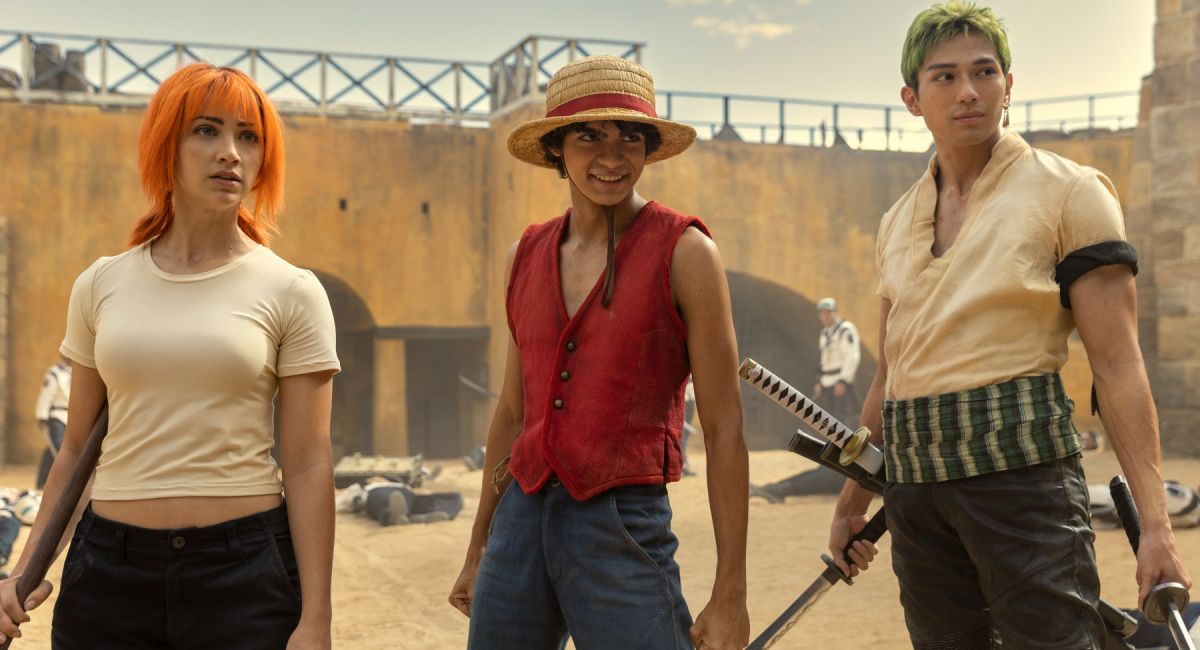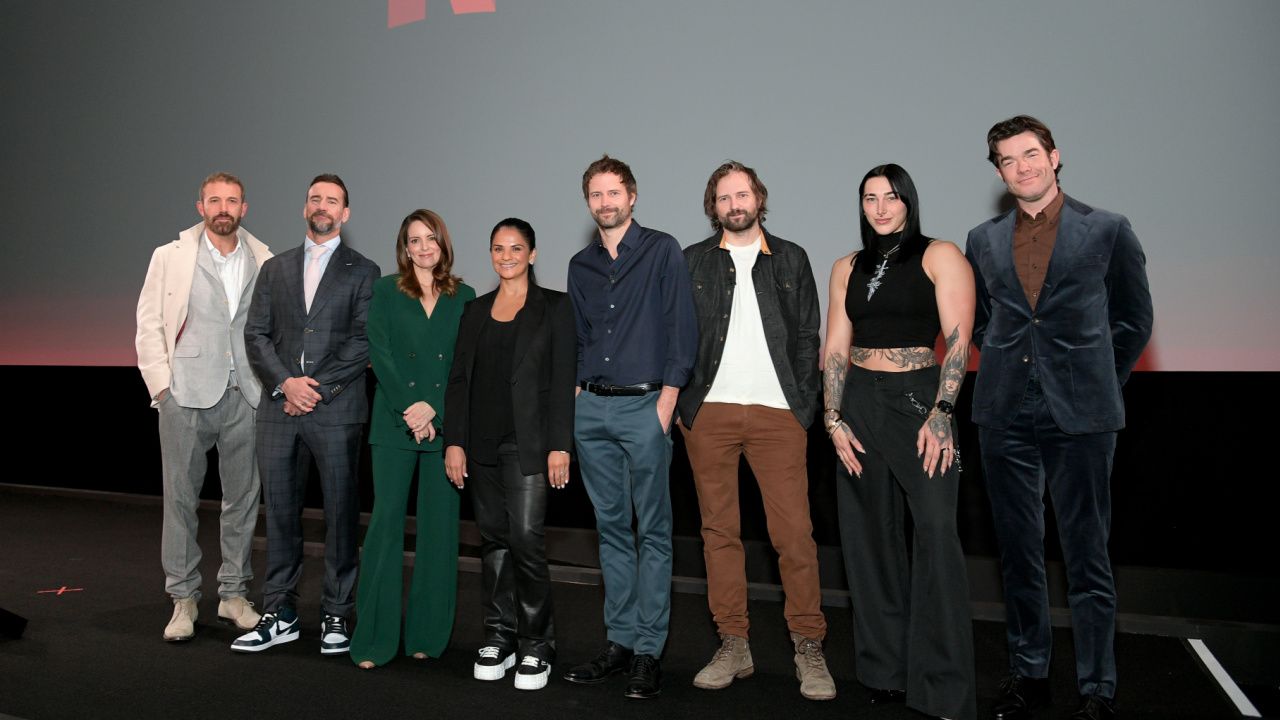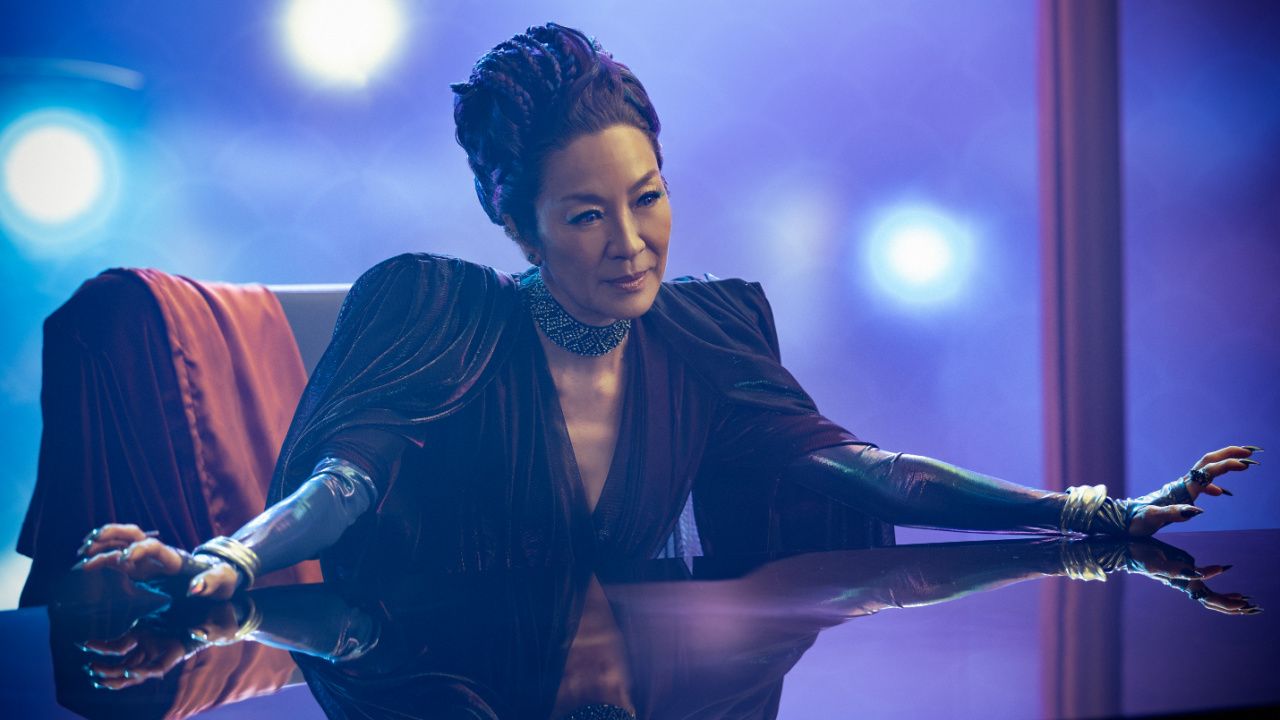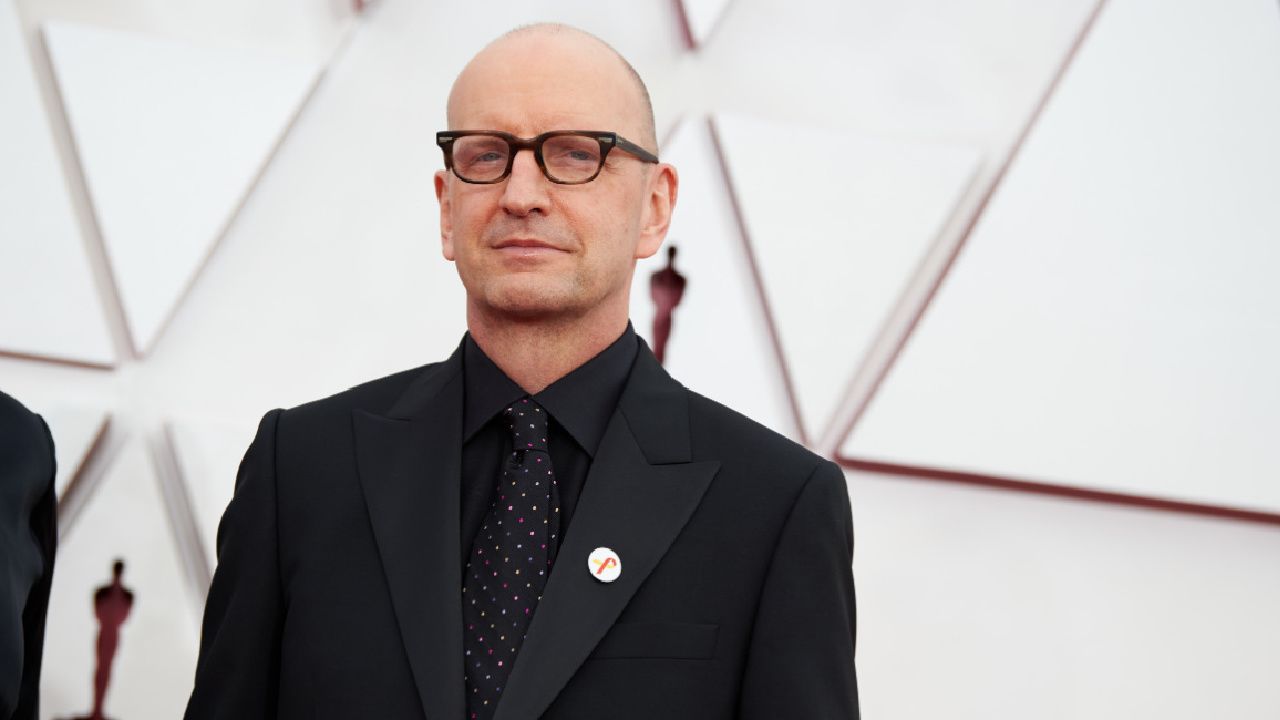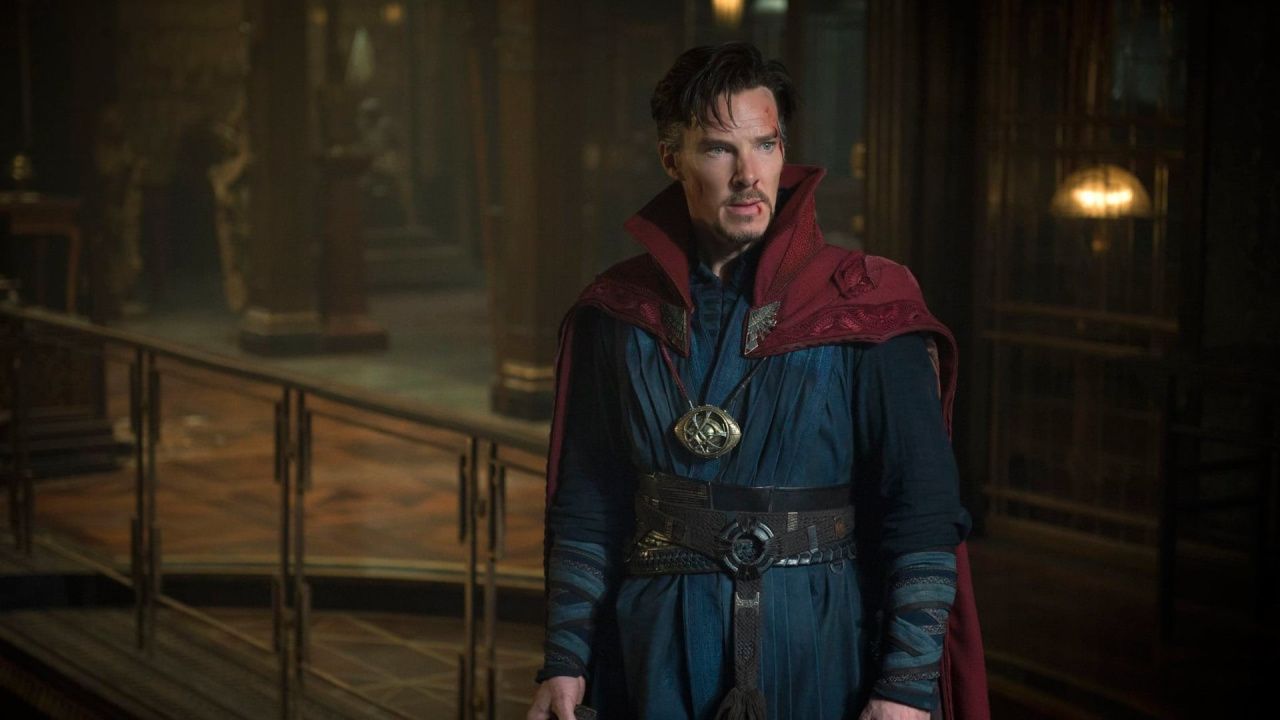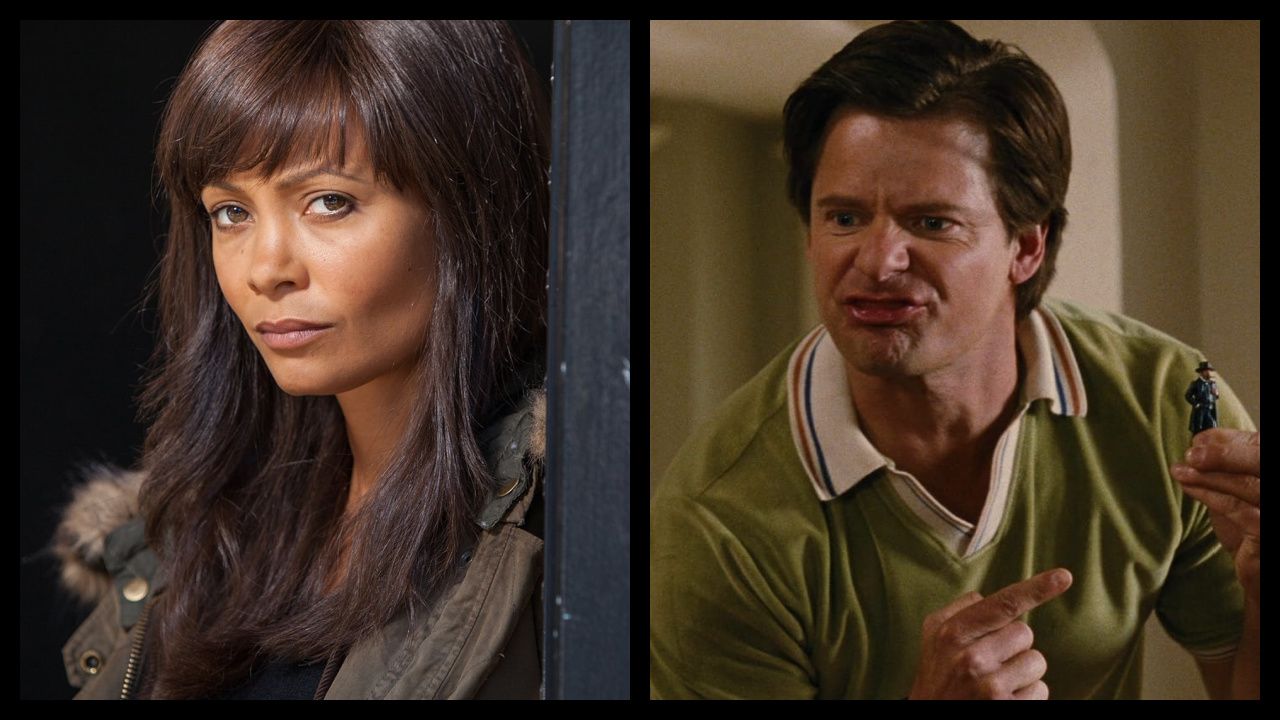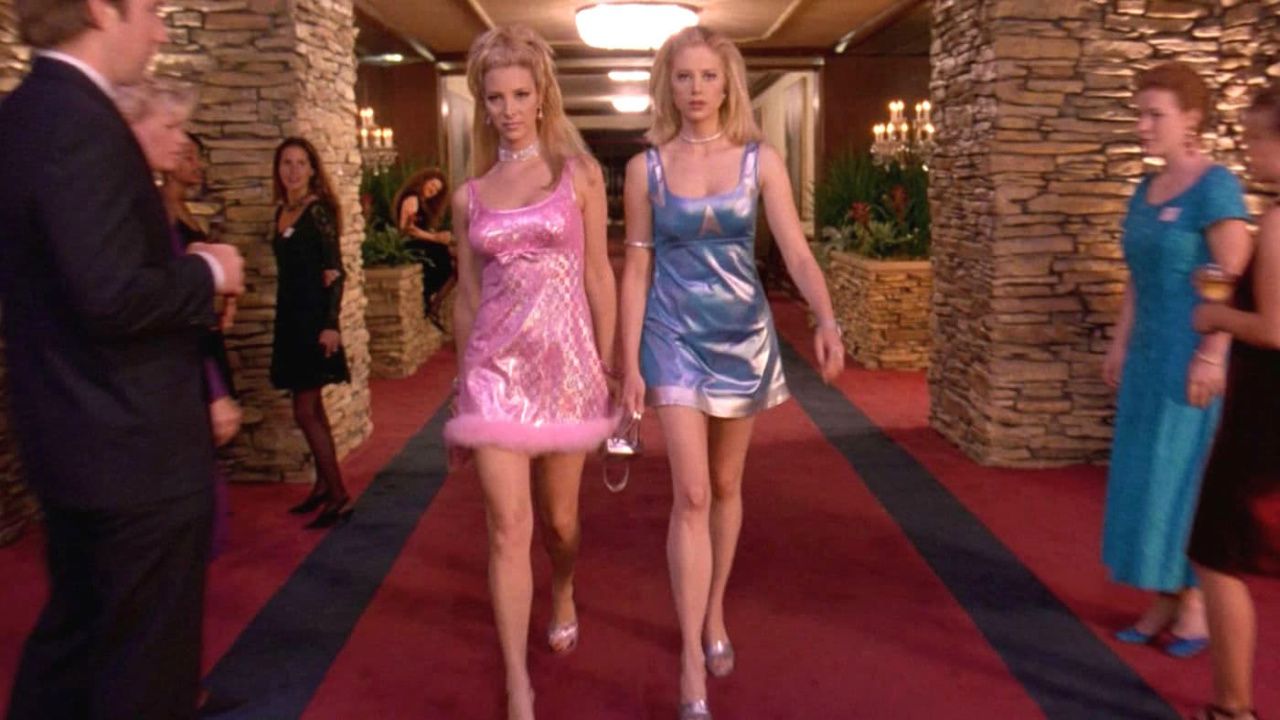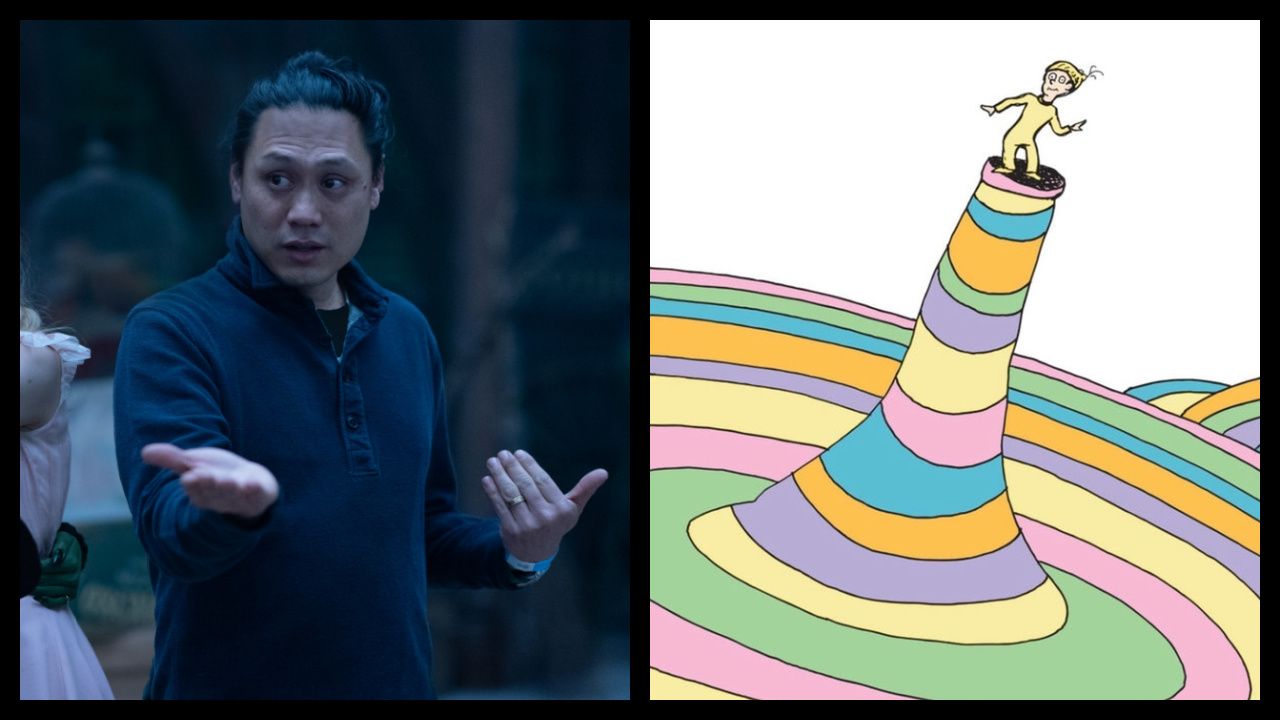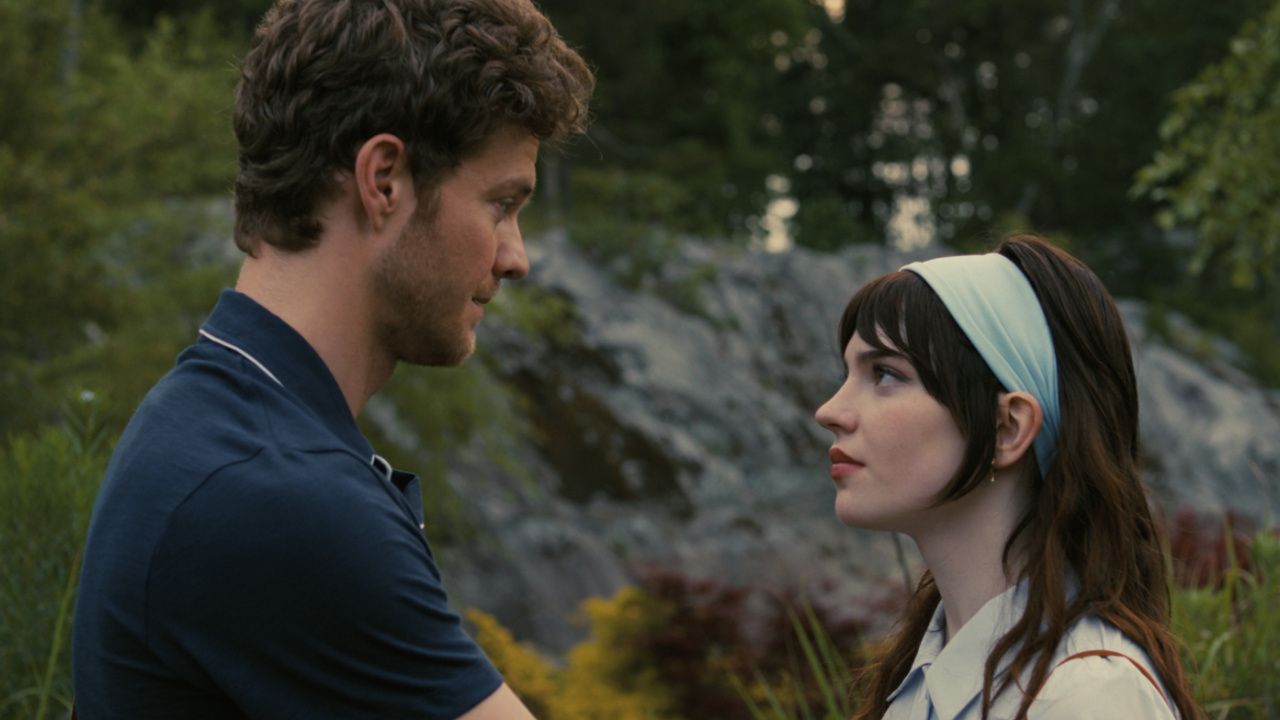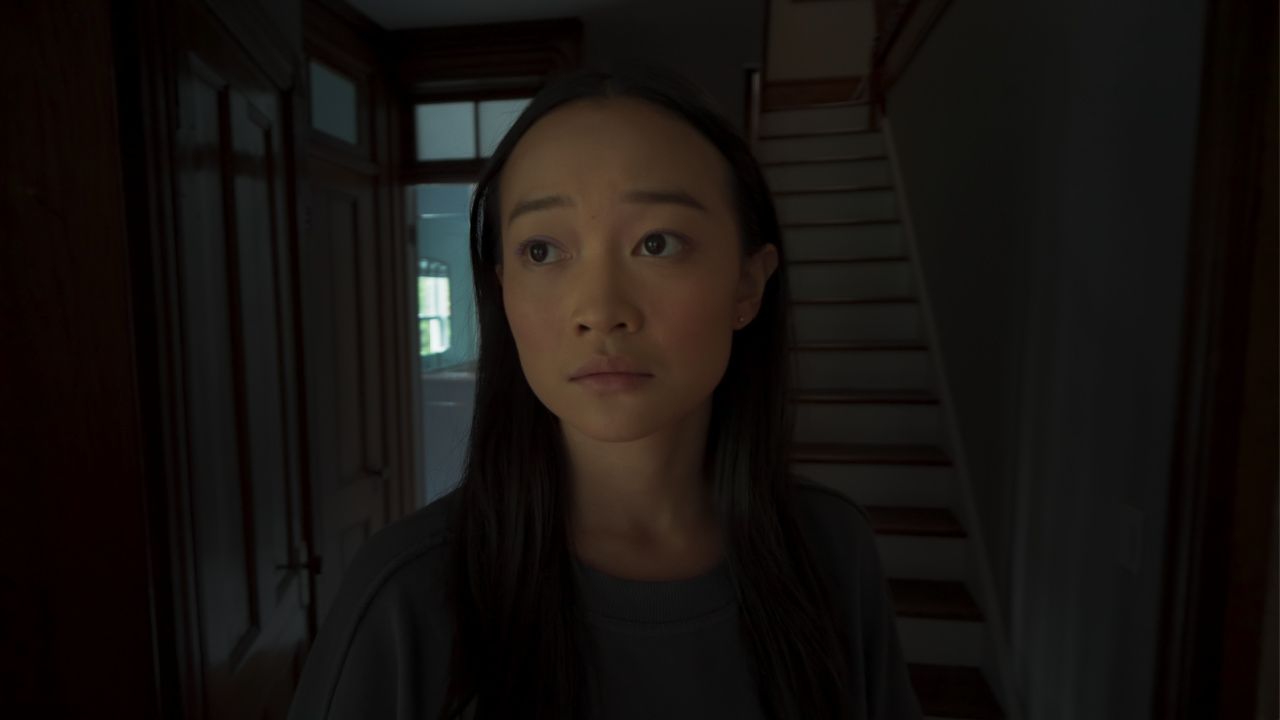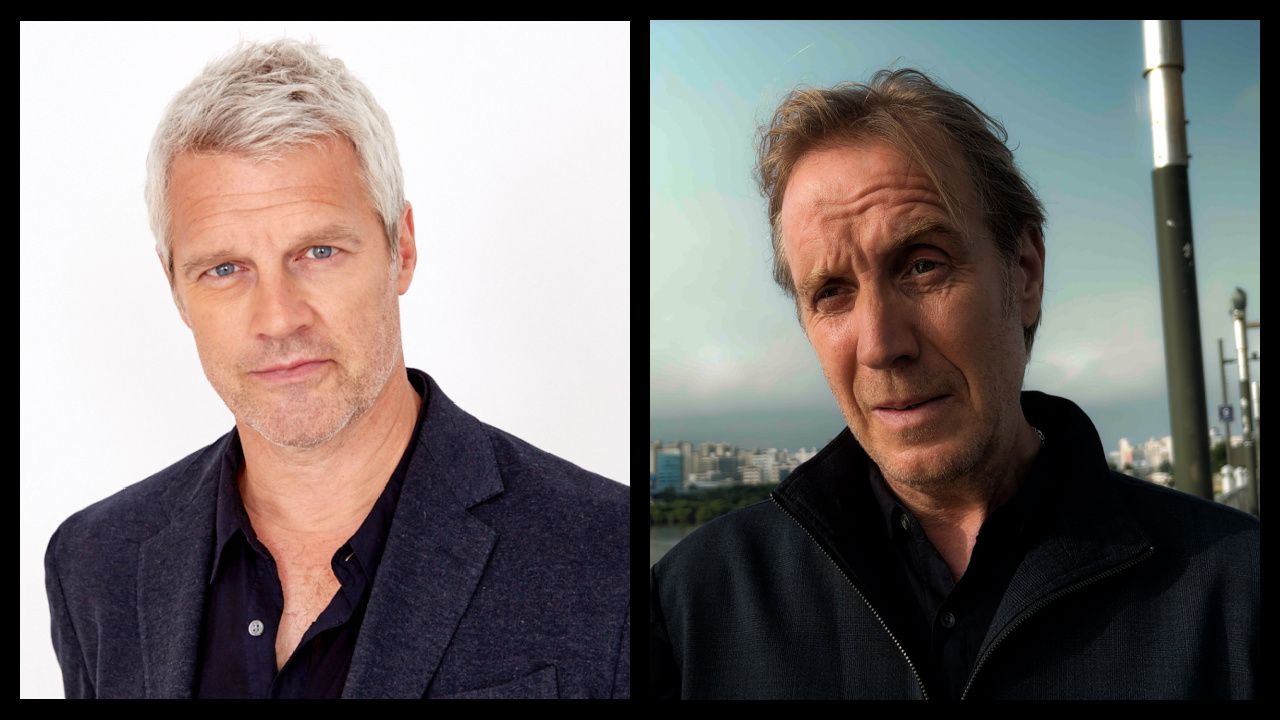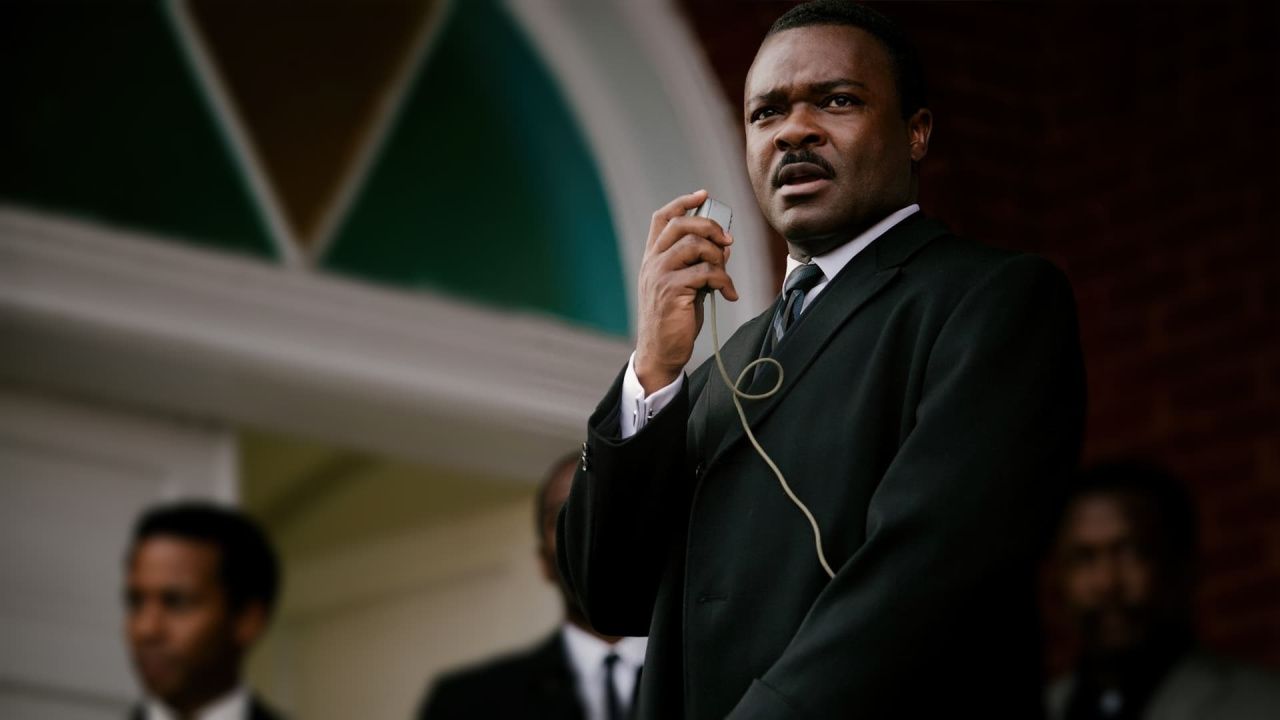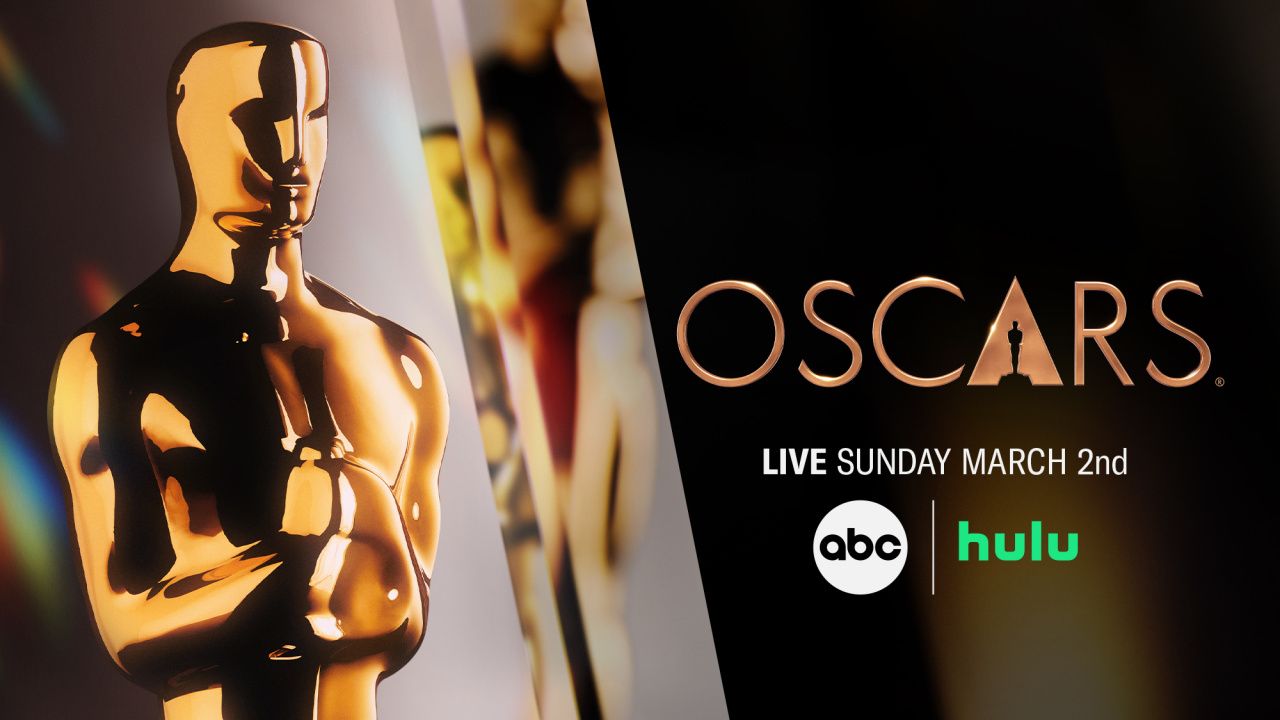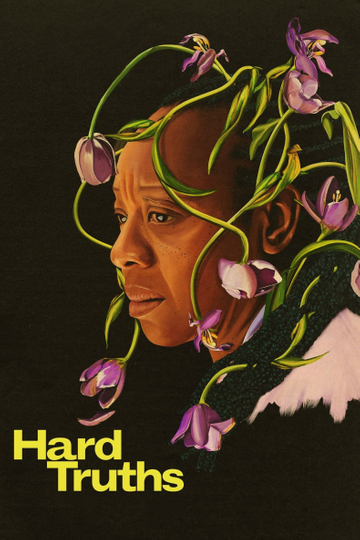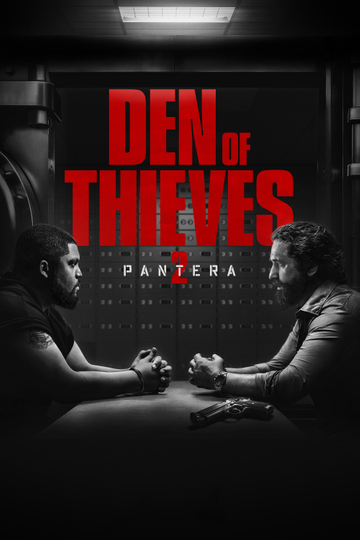'Marvel's Luke Cage' Star Mike Colter on Fight Scenes vs. Sex Scenes and Avoiding the Hype
Marvel's Luke Cage," he's about to become huge.
Colter's already made the character -- a framed ex-con who was given Captain America-level powers in a prison experiment turned sometimes-for-pay superhero, first published by Marvel Comics in 1972 -- his own with his appearance on the last street-level superhero series in the Marvel Studios/Netflix lineup, "Jessica Jones." Providing both a powerful, formidable physical presence ad well as a chemistry-perfect paramour for Krysten Ritter's cynical, superpowered P.I., the 6'3" 40-year-old actor also landed the necessary emotional heft, creating a Cage burdened with the baggage of his past but also a romantic at heart, ready to tilt passionately at the windmills in his path.
Now that Cage is headlining his own series, with all 13 episodes debuting Sept. 30 on the streaming service, Colter steps even further into the spotlight: "Luke Cage" may be the most stylish and complex of Marvel's television ventures to date, and it deeply embraces the character's heritage as one of comics' first leading black superheroes -- not only does the show set the action in a very realistically drawn Harlem, it offers up some playful, knowing nods to the blacksploitation tropes built into the comic book character's DNA.
And the actor is more than ready for his close-up, as he revealed while joining Moviefone and a small coterie of press to discuss his star turn.
As an actor, is it harder to own an established character like this and make it your own? You're playing a pretty well-defined role developed over decades in the comics. Is it harder to make it yours? To look at it and say, "Yeah, I'm bringing something personal to this"?
Mike Colter: Luckily this character -- even though it was well-known and I think pop culture had a very good, clear idea of who they thought he was -- he's never been brought to life on screen. So there was no predecessor. I didn't have to like figure out how am I going to make it different than such-and-such who already played him ten years earlier. I had a blank slate, and so did [showrunner] Cheo [Hodari Coker] and the writing and stuff.
So I felt like we were kind of creating him from scratch. We were doing this for the first time, and you couldn't compare us to anybody else because there's no one else's that had done it before. There wasn't a bad movie that had done it and going, "let's see if we can make this better." There wasn't another series that had been done 20 years earlier and they wanted to reboot it. We just said, 'This is a character that we're going to make fresh, we're going to make him new, we're going to make him relevant today, and applicable to what we're doing today in this culture."
Did you feel any pressure at all coming front and center in this show after a supporting turn in "Jessica Jones"?
No, I'm very good at deflecting. People say stuff about shows and expectations, and in life I'm not a cup-that's-half-empty kind of guy, like people I can think of, but I'm always trying to balance things out. I think for me, going into "Jessica," some people might go, "Oh, I'm going to have my own show -- I can't wait to have my own show. I want to get this 'Jessica Jones' part so I can have my own show," which makes it more focused on Luke Cage. I think you have to be an equal follower. If you have follow, you can lead.
So playing a supporting cast in "Jessica," I was able to explore parts of Luke Cage that were not necessarily explored in the "Luke Cage" series because he was played to support someone that he felt very passionate about, someone who he thought he had a spark with, and still feels he could have a spark with. But the problem is, obviously, they have so many secrets, and it's so layered and so complex, yet they seem like compatible souls.
So when I look at Luke Cage taking on [his own] series, basically all I say to myself, "I'm just coming to work pretty much every day now, as opposed to maybe three days out of five". The workload increases, the character's the same. We're going to Harlem. We're probably shooting more days uptown, and the sets have changed a bit. There's some other characters that are coming in. We have the same crew, the same cinematographer, the same a lot of things. So I look at things that way, that way it's a lot easier for me.
Playing Luke Cage, you've gotten matched up with some amazing actresses -- Krysten Ritter as Jessica, Simone Missick as Misty Knight, Rosario Dawson as Claire Temple -- and get to find different chemistries with each one. Tell me about that process.
It's interesting, because I've been doing it long enough where I've seen it done in a certain way where it can work and not work, and it's nothing to do with ... listen, sometimes they give you chemistry reads. In our case, me and Krysten had a chemistry read. So I didn't meet our Misty Knight earlier -- I didn't test with her. I didn't screen test or anything with Rosario because she was established already.
You just hope that when you meet the person that you have some rapport, because, ultimately, you've got to kind of fall for each other kind of fast, in a movie/TV kind of way. We're all actors and we have to find a way to connect. So sometimes you have to turn on the charm a little more and act a little more. Sometimes it's pretty natural. It just depends. But luckily, I have three people that -- or more -- I'm not going to say, either way, I've come across the women and they're kind of easy to work with, and that's been a gift. So I don't have to try too hard to make the connection.
Do you like playing that romantic leading man element of him, that Shaft / James Bond kind of quality?
You know, if someone had told me that I was going to be a romantic lead at any point, I would have thought it was too cliché. I like to think of myself as a character actor. But in this case, what you're looking at is basically an effortless and sort of seamless, organic development of a character who is looking for companionship, who has lost his main companion, who was also his best friend. Reva is a person he was married to, she was taken from him. That was also his best friend, as most relationships are, so now he has no one to confide in, so he's also looking for someone to talk to.
And so, with Jessica, he thought he had that. Not a lot of talking, but he was getting there. There were some moments they shared some stuff. And then, again, something happens with Misty that may or may not be going anywhere. You just don't know. I look at him as a bit of a hopeless romantic. I mean, that's not what you would think of it immediately, but definitely, when he does think he has something, he goes in pretty hard.
Is it more complicated to do a love scene than it is to do a fight scene?
Complicated? Logistically speaking, it's probably more complicated to do a fight scene, but the sex scenes do add a bit more difficulty because you have to do them over and over and over. And then, you've got a lot of crew in there -- it's a bit awkward sometimes.
It just depends who the person is. If you've done it before, it helps a little bit. But it's never casual. You do the best you can, you crack a few jokes, or not, depending on the day, depending on how the person is feeling. You kind of try and be professional about it, and get to it and make it look good. If you make it look good and you do it right, then you won't have to do it so many times.
Harlem plays such a pivotal role in the series -- what did you enjoy about how deeply embedded it is as Luke's world?
It was kind of like going home again. I lived in Harlem for like five years when I was in New York -- actually, literally across the street, a couple blocks away from where we shot Pop's Barber Shop outside on Lenox Avenue.
And Harlem has changed so much in the last 10 years. I feel like the Harlem that we're projecting in the series is more like the Harlem that I lived in 10 years ago. It's not quite as gentrified. It's gentrified, but there's no Whole Foods there. There's certain things, there's certain elements. It still has a little more edge.
Obviously, the club Harlem Paradise is fictitious, but it kind of harkens back to the era of The Apollo and the Cotton Club. We wanted to have some of that nostalgia, some of that feel of the unique culture that Harlem gives you, because people like Miles [Davis] and people like Louis Armstrong and some of the great athletes, everybody gravitated towards that area of town because this is where they felt they could express themselves, they could feel at home.
So I don't think we wanted to get rid of that. Harlem was important in doing so. Every time we went to Harlem, we felt the love. We felt the love from the community, and let's be honest, Harlem's sidewalks and boulevards are so large, it's the perfect place to shoot. You want those great hero shots coming down the street. You want your hero to have room to walk. You go to Manhattan streets, there's not much room to walk. Luke doesn't come down the street like, "Excuse me, excuse me." No, he has his own path: "Get out of the way, get out of the way."
What do you like about playing the powered-up aspect of him?
I think the main thing is that, less is more sometimes. When you know he has the power and you established that, you don't want to see it used all the time -- because remember, first of all, in the beginning, he doesn't want people to know he has the powers, so there's only like one or two people who knows about his abilities
And then there's also the fact that he doesn't want to be looked at as a freak. He's not walking around doing carnival tricks and stuff like that. He wants to be just a normal guy and stuff like that. He doesn't want people to shoot him. If you shoot him, then, obviously, he gets a hole in his clothing, and also people look at him and go, did you see that? He doesn't want the attention. So he's trying to avoid these little moments where he has to explain his powers.
Would you want to have his powers?
Yeah, it's not bad! You have these powers, you look normal. Your skin's unbreakable and you can run for a long period of time and you can lift up heavy things -- I mean, that's not bad. I could open a moving company or something like that. It'd be easy. I'd be by myself, low overhead, bring a truck, I'd pick everything up and put it in the truck and unload it. One guy. Do it in a couple hours. Pretty good hustle.












